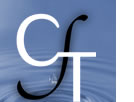 |
||||||||||
Accommodating Student Athletes In the Classroom
by Shalyn Claggett, Lecturer, Vanderbilt English Department
The Stigma of Athleticism
As Julie Cheville points out in her book, Minding the Body: What Student Athletes Know About Learning (Boynton/Cook, 2001), student athletes often fear that they will be stigmatized for their athleticism in the classroom. They sometimes feel that the university system reifies the distinction between mind and body, and that their value to the university is only physical. After numerous interviews with Billy, an African American football player at Iowa State, she explains:
Isolated within an athletic enterprise that privileged his athleticism, he had little occasion to understand his significance to the university as anything but physical. If one layers onto Billy’s struggle broader public assumptions about the ‘hired thug’ or ‘dumb jock,’ as well as animalizing images manufactured by sports journalists and commercial advertisers, the obstacles to academic empowerment to prove formidable. (6)
In addition to this problem, Cheville notes that being a student athlete also brings with it issues related to racial and gender identity. Billy, like other African American student athletes at Iowa State, felt that his athleticism made him more prone to social stereotyping as an unintellectual but physically gifted black man. Further, female student athletes expressed an acute awareness that their sexual identity was under public scrutiny as physically adept women (9-10).
Cheville argues that this baggage is often brought into the classroom, although instructors often remain unaware of the athlete’s concerns or fears. Student athletes may be perceived to have a built-in support system through their team, but in reality, "the splintered nature of their lives contributes to their alienation from nonscholarship students and from an academic realm that is often interpreted for them by coaches, athletic support staff, and upperclassmen" (109). Fearing that their athleticism will be "appropriated and used against them by those who have the power to deny or devaluate their presence," student athletes may feel like a fish out of water in the classroom (4).
Student Athletes at Vanderbilt
Student Athletes at Vanderbilt have a range of resources available to help meet their academic needs. Student Athletes at Vanderbilt must maintain a minimum GPA as noted below in order to remain eligible to play:
- 1.8 at the end of freshman year
- 1.9 at the end of sophomore year
- 2.0 thereafter
These are the same standards that Vanderbilt students must achieve in order to be considered in good academic standing by the University. All student athletes are assigned an academic counselor and all have access to tutors. In addition, study hours are required during the freshman year, and they are encouraged to avail themselves of the Learning Center and Learning Center seminars on time management and study skills.
For more information on academic support for student athletes at Vanderbilt, see the Stratton Foster Academic Center.
Working With Student Athletes
The following are some strategies that have worked for me in the past—they are merely suggestions, and you may find strategies on your own which will better suit your own teaching style.
- Ask your student athletes to remain for a few minutes after class on the first day, and ask them to give you the official list of their upcoming games and meets. Ask them to highlight the meets that will conflict with your class, and also ask for the contact information for their coaches and academic counselors in Student Athletics. Explain that you do this as a matter of course with all student athletes, that you understand their many responsibilities and commitments, and that you want to enter into a network of support with their coaches and academic counselors in order to help them be successful in the classroom.
- Express an interest in their athleticism. Even if you’re not a sports enthusiast, a simple comment or question about a recent game or meet demonstrates that you are aware of your student athletes’ extracurricular commitments. Each semester, after I’ve done this two or three times, I’ve noticed that student athletes become more comfortable in the classroom. They often begin to use their athleticism as a point of entry into class discussions, and form support networks with other student athletes who are not in their sport.
- Mark the games and meets on your attendance sheet before they occur. This will remind you to anticipate absences (so you can photocopy handouts ahead of time) and will also remind you to ask your athletes about games or meets when they return.
- During your first conference with a student athlete, set aside five minutes to discuss any concerns the student may have about keeping up with work, budgeting time, etc… Let the student know that you understand that his or her plate is more full than other students not involved in sports, but also emphasize that this means he or she will have to work harder to meet commitments both in and outside of the classroom, which can be accomplished through proper planning.
- If you are teaching a class that allows for flexibility with writing assignments, encourage student athletes (or at least let them know it’s okay) to write about the sports they play. Some of the best papers I’ve received from student athletes have been about whether or not student athletes should be compensated, steroid use, personal narratives about sports injuries, etc…
Contacting Academic Counselors
If you have any concerns about a student athlete’s performance or behavior, the academic counselors will be happy to help. See the Stratton Foster Academic Center staff listing for contact information.
HOME | ABOUT CFT | PROGRAMS | SERVICES | RESOURCES
Center for Teaching |
General Questions? Web Site Questions? Copyright ©2009 |
